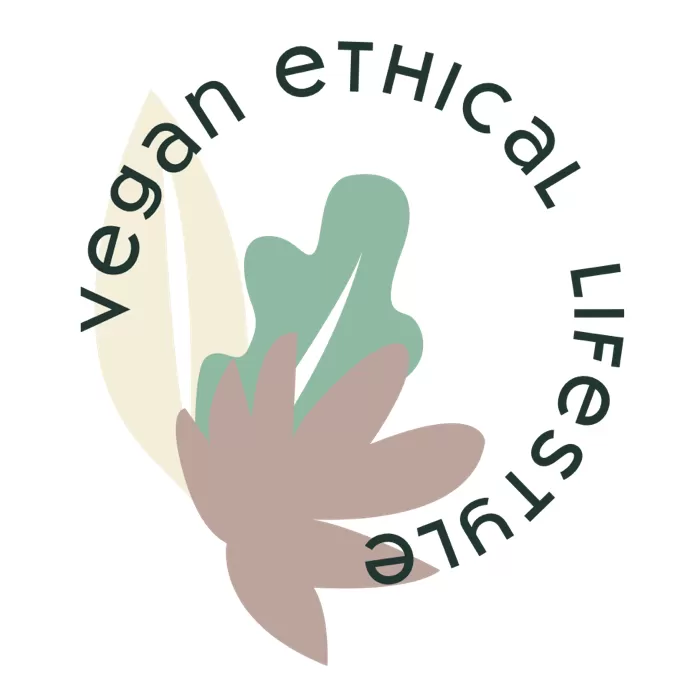VE lifestyle
Few months ago, we would never think that we can arrived at the point in our history where we are at this very moment. We were thinking how we can change our world and do something that really matters. We took decision to show everybody that life without abusing people and without harming animals and natural environment is possible!
WE FOUND THE WAY!
Have you already heard about FAIR-TRADE FASHION or SLOW FASHION? No? Well, you’re in the right place to start to change your lifestyle. To become a conscious consumer. We created this space where people like you can find shoes and accessories produced in a different way! A BETTER WAY!
VE-lifestyle wants to show you this way.
For US good style means taking full responsibility for our choices, being aware of their consequences and respecting the world around us and all living creatures. We live in a time where we don’t have to compromise. We can look stylish buying high quality clothing and accessories and be ethical!
And what do YOU think? Have you ever thought about the importance of this aspect of fashion? How this stylish factory works? What is hiding behind the price of your shoes? What is the real cost of their production process? How, so called, FAST FASHION wants you to spend your many over and over on new products that you don’t really need? And what about animals, environment, people? What about OUR PLANET?
Our vision
VE-lifestyle would like to show you that fashion without abusing people, harming animals and devastating environment is possible. That you can be well dressed being ethical. We want to change YOUR way of thinking and YOUR perception of the world. We would like to show you that you can buy a pair of high-quality vegan shoes and enjoy them for a long time. That they can be well done, stylish and fashionable.
On every step of our activity we are collaborating only with highly selected companies which are working in an ethical way. From the producing process to the end customer delivery we are careful checking whether our requirements have been met. And we don’t stop here! We support a local animal shelter Le Rêve d'Aby helping them in their mission. We dedicate part of our turnover to shelter residents. Join us and help us create a better world for abandoned animals.
Our ambition is to create a trend of change, a group of conscious consumers who will be bravely saying NO! to the Fast Fashion producers and who will be defending with us the vegan, ethical lifestyle!. Being ethical in these times is possible and it is nothing complicated. We have so many possibilities, so many alternatives, the only one thing we need to do is make the right choice. Join us and help us to change the world! Why? Because it matters!
Fair trade philosophy
We fully respect human rights by choosing only those producers which providing their employees good work conditions with respect of their rights. We choose only those products which are made fully from vegan materials. And what is also very important we choose only such materials which are environmentally friendly - fully recycled. This is what exactly the FAIR-TRADE FASHION means. It is minimizing a bad influence of a fashion industry on Earth, through conscious choices of products, which were made with full respect for human rights, animals and environment.
Slow fashion
It stands in opposite to the FAST FASHION. It is a conscious and wise approach to fashion. It means buying fewer clothes which are better quality and last longer. True, higher quality costs more, but it is better to buy one good quality pairs of shoes than five cheap ones that will break after first use. Try to buy from local producers or artisans. Choose only high quality, environmentally friendly materials. Be a conscious consumer and look for ethical products. Avoid impulsive purchases, don't throw away your clothes but take care of them and repair them or remake them.
WHAT FAIR TRADE MEANS TO US ?
Some of the kids in Global South countries instead of enjoying their childhood and going to school, have to go to work. Why? Well, because the majority of the fast fashion employees, even though they are full time workers, live in extreme poverty. They don’t even earn enough money to prepare a meal for dinner. Big fashion companies, focused only on profits, wind up a crazy mill of SOLDS. They want to sell more and more by reducing as much as possible their costs of production. LOW prices mean slavery, LOW quality products and NO respect. Economical slavery, children labor and hazardous working conditions it is 21st century’s standard in whole fashion industry. But we can change it! We can choose products made by people who work in safe conditions, whose rights are respected and who get a fair salary for their work. This is why we collaborate only with producers who produce in EU countries or those who can show off certificates like Fairtrade or Fair Wear Foundation.
We live in a time where we don’t have to exploit animals to lead comfortable or even luxury life. Science and technology are so much developed that we can easily replace animal originated components. About some of them you can read in the RAW MATERIALS section.
Buy consciously and look for certificates like Peta Approved Vegan, or Vegan Society to be sure that the production process caused no harm to animals. Choose brands whose policy is about empathy and veganism.
Leather producing process, especially leather tanning, requires the use of very toxic chemicals. Workers are directly exposed to harmful effects of all dangerous substance used during this process. Chromium IV for instance causes skin and respiratory diseases leading to early deaths. Not to mention that all of these toxins get into rivers, soil and air having direct impact on all of us. By choosing natural alternatives like cork, organic cotton, natural rubber or Piñatex we can change this situation. Production process of microfiber is less harmful for the Environment than most of natural leather industry. What you need to do is look after it. Be conscious, be wise and believe me you will be positively surprise!
Not only shoe industry is using harmful chemicals during its producing process. Also cotton industry is using them a lot. Why? Mostly to defend cotton plants from pests. Cotton uses 10-16% of the world’s pesticides including herbicides, insecticides, and defoliants. The consequences are serious. Chemicals used in the processing of cotton pollute the air and surface waters. Pesticides used to protect plants decrease biodiversity and shift equilibrium of ecosystems.
How to change it? Very easy! Look for textiles that are environment friendly like organic cotton. Certificates like Oeko Tex Standard 100 or GOTS will help you to choose the most environmentally friendly products.
Each day scientists try to find new high-quality alternatives that can easily replace leather. Not only microfiber or Piñatex can be used to make your favorite pair of shoes but also something which is exotic and still not well known – a leather made from apples, cactuses or grapes. Production of those alternatives develops existing industry and creates new workplaces without devastating OUR PLANET!
Raw materials
Is NATURAL LEATHER the best possible material for shoes? For sure is not an ecological one. Why? Well, mostly because of the animal breeding process in which leather is not always a by-product but usually it is the final product. Especially if you would like to have shoes or cloths form exotic leather or fur. Moreover the leather industry is one of the most water-intensive across the globe. From the water used to raise animals to the water used in tanning and finishing processes. Leather tanning process requires highly toxic chemicals which cause very heavy diseases. A first phase of this process, the most polluting, is often carried out in developing countries. Again, you could ask why? The answer is very simple. The environmental laws in developed countries are stricter and such activity is simply prohibited. This industry is also notable for wastewater it produces, sometimes with a heavy pollutant load.
Let us show you alternative materials which can be used to produce your favorite pair of shoes. Materials which are vegan, ecological and believe us they can be much durable than natural leather. Just have a look!
Microfiber leather is a synthetic leather formed from a mix of polyester and nylon. Its fibers are very thin, 30 times thinner than cotton and 100 times thinner than a human hair! A shape, size and fiber’s composition may be varied. Microfiber leather imitating a suede contains an admixture of cotton which makes it softer and has a different texture.
Microfiber used in the shoes production process is high-class synthetic leather. It perfectly replicates features of real leather such as the hand feeling, breathability and moisture absorption. Its performance including e.g. chemical and abrasion resistance, anti-crease, aging resistance are better than natural leather. The quality of microfiber is very stable. What is also very important, it is recyclable!
Some microfiber, unlike leather, can be washed in the washing machine. Microfiber products maintenance process is very easy. What you need is only water and a cloth/brush, sometimes impregnate – if the material is not one of these completely waterproof. This is why microfiber became one of the most popular materials used in the vegan footwear production process.
Organic cotton is grown organically in subtropical countries such as India, Turkey, China, and parts of the USA. It must be grown from non-genetically modified plants and without the use of any synthetic agricultural chemicals such as fertilizers or pesticides (aside from the ones allowed by the certified organic labeling). Organic cotton constitute only 1-2% of global cotton production. The biggest producers of this kind of cotton are India (>50%), China and Turkey. Even more popular brands from FAST FASHION trade incorporate organic cotton as part of their supply chains.
In vegan footwear industry organic cotton is mostly use to produce classic trainers. This breathable material provides comfort in the warm and dry season.
Polyethylene terephthalate is the most common thermoplastic polymer resin of the polyester family. Is mostly used to produce cloths fibers, bottles, containers, thermoform packaging, etc. Most of the the world’s PET production is for synthetic fibers called polyester (60%), but bottles production accounting for about 30% of global demand. The acronym PET is generally used in relation to packaging. Polyester makes up about 18% of world polymer production and is the fourth-most-produced polymer.
PET is commonly recycled and used to manufacture new products like bottles, containers, thermoform packaging, etc. It is also used in fiber applications such as carpet and apparel. During recycling PET goes through a cleaning, grinding, and melting process in result giving a new life to plastic and reducing rubbish around us. As it is very durable material it become more and more popular in the footwear industry as well. With its felt-like structure it can be transformed in a pair of very stylish shoes.
Piñatex is a natural leather made from cellulose fibers, extracted from pineapple leaves. It substitutes leather and brings new income streams to subsistence farmers. Its properties are almost identical to the natural leather, but it not contains toxic substances used during the leather tanning process. It is breathable and, if impregnated regularly, water resistant. Produced in different thicknesses and various colors Piñatex become a very nice alternative material for the footwear industry. A very important fact about Piñatex is that its producing process is harmless for the environment. Pineapple leaves are not a byproduct of crops. There is no need for additional land, water, fertilizers or pesticides. After obtaining the fibers form leaves a remaining product can be used as an organic fertilizer. It is a fully environment friendly and ethical product!
Desserto it is a cactus vegan leather developed by Adrián López Velarde and Marte Cázarez. It is made from cacti grown in Mexico. The cactus is known for its rugged, thick skin, which makes it the perfect texture to simulate animal leather. This plant does not need any water to grow, and there is plenty of it throughout the Mexican Republic. Mature leaves are cut from organically grown cactus plants, cleaned, mashed, and then left out in the sun to dry for three days prior to processing. It can then be dyed naturally using methods. This makes for vegan leather that is certified organic and can hold up to regular usage for nearly a decade. Cactus leather is breathable, flexible, soft, nice in touch and can be colorful. Is also biodegradable and doesn’t contain any plastic.
MuSkin is a 100 % vegan alternative to animal leather. Produced from the cap of Phellinus ellipsoideus, a gigantic parasitic fungus that attack tree trunks in subtropical forests. Under appropriate, optimal conditions fruiting body is being transformed into MuSkin. It can be grown in different shapes, sizes and width. Thanks to cellulose which feeds the fungus in only two weeks we can grow as much material as we would receive from killing an adult cow. The material is treated in a similar way to animal leather but with the use of natural techniques. These include also using eco-friendly eco-wax, which adds special characteristics to the leather. The total absence of toxic substance makes Muskin ideal for the use in close-to-skin applications. It is 100% biodegradable, very high quality, stretchy, durable, waterproof, breathable and does not cause any allergic reactions.
A grape pomace is ideal for producing a textile very similar to leather. It doesn’t need any water to produce it and it doesn’t require a complex and toxic tanning process. Wine leather is soft, smooth, stable, 100% vegan, 100% sustainable and 100% recyclable. It almost feels like leather, have similar properties and can also be processed adequately. The main ingredient of wine leather are waste products of Italian wine production. Core and shell form the basis of this material. In the first part of production process the grape marc is dried. The fibers contained in the bio-oil, obtained from the seeds, in combination with an innovative manufacturing process and the addition of chemical substances create a material very similar to natural leather. Its production process uses no oil, is 100% sustainable and contains minimal nontoxic chemical reagents. From 10 liters of wine we can obtain 2,5kg of grape marc which give us around 1 square meter of leather.
After making apple juice the pomace is usually thrown away. But it can be used to create something useful. Currently scientists developed several methods of obtaining apple leather. The apple pomace is first homogenized and mixed with natural resin. So prepared paste is applied on the textile and left to dry. This material is 100% eco, as its production process does not cause any pollutions. It is biodegradable, as the base comes from organic wastes and it does not contain any potentially toxic substances.
Cork is a natural and renewable raw material extracted from cork oak with respect to the natural development of the tree. The harvesting process is completely harmless to the trees. The tree is devoid of the cortical pieces layer without damaging the inner part, which regenerates the cork. The bark can be removed for the first time when the tree reaches 25–30 years of age and about 60 cm in circumference. Each tree is harvested every 9-12 years which give us about 12 harvests during one oak’s lifetime. The trees live for about 300 years.
The biggest producers of cork are Portugal (50%), Spain, Morocco, Algeria, Tunisia, Italy, and France.
Cork because of its impermeable, elastic, and fire-retardant properties, is used in a variety of products, the most common is wine stoppers. But not only! It is also a quite common material used in the footwear industry. Cork shoes are comfortable, very light and create a healthy walking environment for your feet. They are odor resistant, totally waterproof and they adapt to the shape of your feet.
There is still plenty of recycled materials which can be used by footwear industry. Rubber, rope or recycled air bags and tires are good examples of them. The production process of air bags shoes is eco-friendly and do not cause CO2 release into the atmosphere. Thanks to the material used, they are very durable and waterproof. Those materials are environmental and animal friendly. By giving a new life to a material that is no longer useful we can create a pair of stylish vegan, ecological and ethical shoes.
Certificates
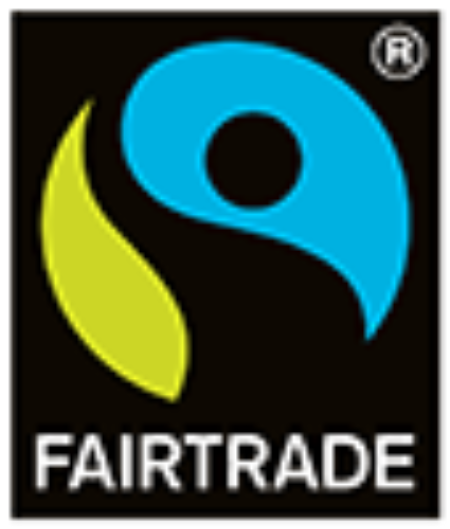
One of the well-known certificates in ethical world. Certificate is awarded by the Fair Trade International organization but the certification process is executed by FLO-CERT. – an independent certification unit. The original FAIRTRADE Mark has always stood for fairly produced and fairly traded products. All production levels need to meet the Fairtrade standards and requirements. The certificate is given for one, specific product only. What the certificate exactly means? It means that the product has a fair price. Workers get sustainable salaries and good social conditions. It also means the product is fully traceable (kept separate from non-certified products) from farm to shelf. The producers’ organization is ruled democratically, and trading practices are based on transparency and respect. The producer’s independence is strongly promoted.
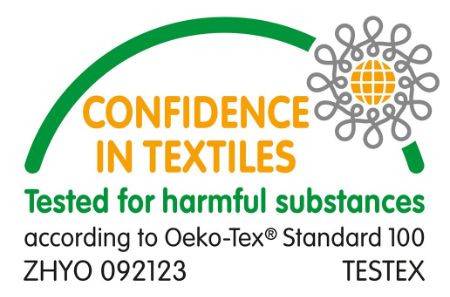
A certifocate initiated by Österreichische Textil-Forschungsinstitut (ÖTI) and Forschungsinstitut Hohenstein. All textile articles marked with the STANDARD 100 label has been tested for harmful substances and you can be sure they are harmless for human health. The test is conducted by independent OEKO-TEX® partner institutes on the basis of the extensive OEKO-TEX® criteria catalog. In the test they take into account numerous regulated and non-regulated substances, which may be harmful to human health. In many cases the limit values for the STANDARD 100 go beyond national and international requirements. The criteria catalog is updated at least once a year and expanded with new scientific knowledge or statutory requirements.
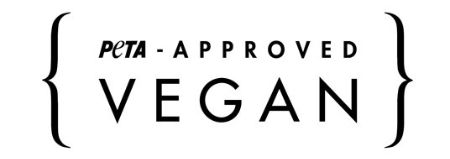
PETA-Approved Vegan is a certificate established by the People for the Ethical Treatment of Animals (PETA), an organization working for animal rights. They started its own certification system for products free from animal components and not tested on animals (vegan products). This certificate highlights clothing, accessories, furniture, and home decor items made of vegan alternatives to animal-derived materials such as leather, fur, silk, feathers, or bone.
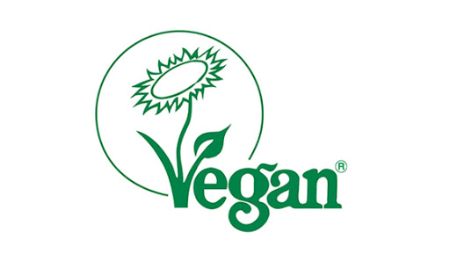
The Vegan Trademark has been created in 1990. The trademark is used on labels worldwide as the authentic standard for products free from animal ingredients. It represents the international standard for authentic vegan products. This certificate guarantees that a product neither was tested on animals nor it includes any animal components. It is given for one product and not for all production within the company.
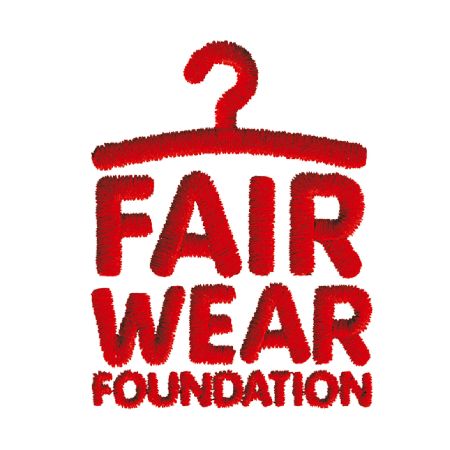
Fair Wear Foundation it is s an independent organization that works with garment brands, garment workers and industry influencers. The aim is to improve work conditions in garment factories. Factories are obligated to comply specific standards like suitable salaries for workers, no child or forced labor, stable workplace and working hours guaranteed by employment contract as well as equality and respect for all workers.

Global Organic Textile Standard is the worldwide leading textile processing standard for organic fibres, including ecological and social criteria. It is backed up by independent certification of the entire textile supply chain. The aim of the standard is to define requirements that ensure organic status of textiles, from harvesting of the raw materials, through manufacturing up to labelling. Textile processors and manufacturers are enabled to export their organic fabrics and garments with one certification accepted in all major markets. GOTS certified products contain at least 70% of organic fibers. All chemicals used at the production process meet strict environmental and toxicological criteria.
